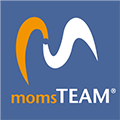Country:
State:
City:
Date:
FOR IMMEDIATE RELEASE
Concord, MA, September 8, 2014: Best practices for concussion safety education will be among the topics addressed at the groundbreaking youth sports health and safety SmartTeams Play SafeTM: Protecting the Health & Safety of the Whole Child In Youth Sports By Implementing Best Practices summit on Monday, September 15, 2014 at Harvard Medical School in Boston, sponsored by MomsTEAM Institute, a leading youth sports health and safety think tank and watchdog group.
In advance of the summit, the Institute, producer of the PBS documentary, "The Smartest Team: Making High School Football Safer", offers the following checklist of what experts say all sports parents need to know about sports-related concussions:
1. The signs and symptoms of concussion:
- symptoms (headache, nausea, vomiting, dizziness, visual problems, sensitivity to light/noise, balance problems);
- physical signs (loss of consciousness, unsteady gait/balance problems/dazed facial expression)
- impaired brain function (confusion, feeling mentally "foggy," feeling slowed down, difficulty concentrating and remembering a/k/a amnesia);
- abnormal behavior (change in personality, irritability, sadness, nervousness, more emotional, depression); and/or
- sleep disturbances (insomnia, drowsiness, sleeping less than usual, sleeping more than usual).
2. The importance of encouraging athletes to honestly self-report concussion symptoms and creating an environment in which athletes feel safe in self-reporting.
3. The importance of watching for delayed symptoms, including behavioral changes, and concentration and memory problems, which may only appear hours or even days after a strong blow to the body or head during practice or game action. Delayed symptom onset is especially common among children and teens.
4. The need to regularly and close monitor athletes during the first 24-48 hours after diagnosed concussion for signs of deteriorating mental condition suggesting a more serious brain injury which requires immediate hospitalization;
5. The importance of cognitive and physical rest in the first few days after concussion, including staying home from school;
6. The importance of a gradual return to school (and the possible need for academic accommodations)
7. The importance of being off all academic accommodations and completing a step-by-step, symptom-limited, exercise program before a concussed athlete should be allowed to return to sports;
8. The dangers of continuing to play with concussion symptoms and returning to play too soon, before your child or teen's still-developing brain has fully healed, including increased risk of adverse short- and long-term, and even catastrophic injury.
9. The need for more conservative management of concussions in children and teens as compared to college-age athletes and adults.
The SmartTeams Play SafeTM summit will feature a series of educational, "TED-talk"-style presentations by nationally-recognized clinicians, researchers and youth sports safety advocates. In sharp contrast to symposiums, which focus on identifying the problems the nation confronts in making youth sports safer, the SmartTeams Play SafeTM summit will put knowledge into action, offering youth sports programs a set of concrete steps that they can take to help young athletes play safe by being smart.
The day-long event will take a holistic approach to youth sports safety which addresses not just a child's physical safety, but emotional, psychological and sexual safety as well, and will show how, by following best practices, youth sports programs can stem the rising tide of injuries that have become an all-too-common and unfortunate by-product of today's hyper-competitive, overspecialized, and over-commercialized youth sports environment.
The summit will also mark the launch of pilot programs in six communities around the country - each coordinated by a university-based athletic training educator, clinician and researcher,- designed to test MomsTEAM's innovative SmartTeamTM program. Modeled on the community-centric approach to improving youth sports safety highlighted in "The Smartest Team", the program will award SmartTeam status to youth sports organizations which have demonstrated a commitment to minimizing the risk of physical, psychological and sexual injury to young athletes by implementing a comprehensive set of health and safety best practices, providing safety-conscious sports parents a level of assurance that they have made health and safety an important priority, not to be sacrificed at the altar of team or individual success.
"While virtually every state in the country now requires that parents and athletes receive some basic concussion safety information as a condition to participation, best practices for concussion safety education require far more than can fit on an 8 ½ by 11 sheet of paper," says Brooke de Lench, Executive Director of MomsTEAM Institute, and producer of "The Smartest Team" documentary.
For more information about the conference, visit http://www.smartteamsplaysafe.com/.
About MomsTEAM Institute and MomsTEAM.com
Launched in August 2000, MomsTeam.com has grown over the years, both in terms of content and reputation, to more than 10,000 + pages of information for youth sports parents and has become the most trusted source of sports parenting information, widely recognized as one of, if not the, top websites of its kind.
MomsTeam Institute, Inc. is a Massachusetts non-profit corporation formed in November 2013 to continue and expand on MomsTEAM's fourteen-year mission of providing comprehensive, well-researched information to youth sports parents, coaches, athletic trainers, and other health care professionals about all aspects of the youth sports experience.
Media Contacts:Sheila M. GreenOffice: (617) 337-9514Cell: (339) 224-3914Email: sgreen@thecastlegrp.com



